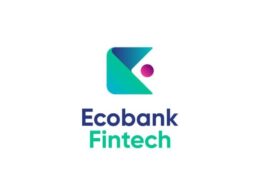Ghanaian digital banking startup Affinity Africa has crossed the 100,000 customer milestone, marking a significant achievement for the branchless financial services provider as it reshapes banking accessibility across West Africa.
The milestone, reached ahead of internal projections, reflects what the company describes as “rapid organic growth, powered by word of mouth and customer advocacy” — a rare feat in an industry where customer acquisition typically demands heavy marketing investment.
From Launch to 100K: Affinity’s Growth Trajectory
Founded in 2022 by entrepreneur Tarek Mouganie and publicly launched in 2024, Affinity Africa operates as a fully regulated, branchless digital banking platform delivering affordable and accessible financial services to individuals and micro, small, and medium enterprises (MSMEs) across Ghana.
The platform offers a comprehensive suite of financial products including:
- Personal and SME accounts
- High-yield savings accounts
- Domestic and international payments
- Money transfers to banks and mobile money wallets
- Investment products
- Credit facilities
Unlike traditional banks burdened by physical infrastructure costs, Affinity’s digital-first approach enables it to offer zero-fee banking services — a proposition that has resonated strongly with cost-conscious Ghanaian consumers and small business owners.
$8 Million Seed Round Fuels Regional Ambitions
Earlier in 2025, Affinity announced an oversubscribed $8 million seed funding round to accelerate domestic expansion and prepare for entry into new African markets. The capital injection positions the startup to scale its technology infrastructure and product offerings while maintaining its customer-centric approach.
The funding round’s oversubscription signals strong investor confidence in Affinity’s business model and the broader African fintech opportunity, where millions remain underbanked or excluded from traditional financial services.
Affinity Boost: Goal-Based Savings for Financial Empowerment
Building on its momentum, Affinity recently launched Affinity Boost, a goal-based savings account designed to help individuals and small business owners accelerate their financial objectives through competitive interest rates.
The product addresses a critical need in Ghana’s financial landscape, where many citizens lack access to savings vehicles that offer meaningful returns while maintaining liquidity and accessibility.
Banking Reimagined: The Affinity Difference
“The idea that banking could be free, fair, and accessible was long dismissed as impossible in Ghana,” said Tarek Mouganie, Founder of Affinity Africa. “We have shown the opposite. Reaching 100,000 customers ahead of target, with little to no marketing spend, is proof that when you design the right product, customers themselves become your biggest advocates. Our growth has been driven by word of mouth, virality, and genuine customer love.”
This organic growth trajectory stands in stark contrast to the customer acquisition strategies employed by most digital banks and traditional financial institutions, which typically allocate substantial budgets to marketing and promotional campaigns.
Abdul-Jaleel Hussein, CEO of Affinity Ghana, attributes the company’s success to product-market fit rather than promotional tactics.
“What’s attracting customers to Affinity is not campaigns or promotions, but the product itself,” Hussein explained. “From instant onboarding to transparent pricing and some of the most competitive interest rates in the country, Ghanaians are choosing Affinity because they finally see a financial institution built around their needs. And with our proprietary underwriting, many are accessing credit for the very first time, opening doors for households and businesses that were previously excluded.”
Financial Inclusion Through Technology
Affinity’s proprietary credit underwriting system represents a significant innovation in Ghana’s financial services sector. By leveraging alternative data and advanced analytics, the platform extends credit access to individuals and businesses that traditional banks have historically overlooked due to lack of formal credit history or collateral.
This approach directly addresses Ghana’s financial inclusion challenge, where small business owners and informal sector workers — who constitute a significant portion of the economy — have struggled to access formal credit facilities.
Market Context: Ghana’s Digital Banking Revolution
Ghana’s financial technology sector has experienced rapid growth in recent years, driven by high mobile penetration rates, improving internet infrastructure, and a young, tech-savvy population increasingly comfortable with digital financial services.
The country’s regulatory framework, overseen by the Bank of Ghana, has evolved to accommodate digital banking innovation while maintaining consumer protection standards. This balanced approach has created an environment where fintech startups like Affinity can operate with regulatory clarity while competing with established financial institutions.
What’s Next for Affinity Africa?
With 100,000 customers onboarded and fresh capital in the bank, Affinity Africa is positioning itself for the next phase of growth. The company’s immediate priorities include:
- Product expansion: Rolling out additional financial products tailored to MSME needs
- Geographic expansion: Entering new African markets where similar banking gaps exist
- Technology enhancement: Investing in platform capabilities to support growing customer base
- Credit access: Expanding lending operations through refined underwriting models
As African fintech startups continue to attract global investor attention and reshape the continent’s financial services landscape, Affinity Africa’s milestone demonstrates that sustainable growth in emerging markets can be achieved through genuine product innovation and customer-centric design rather than expensive customer acquisition campaigns.
The company’s success also highlights the massive untapped opportunity in serving Africa’s underbanked populations — a market that traditional financial institutions have struggled to reach economically.












